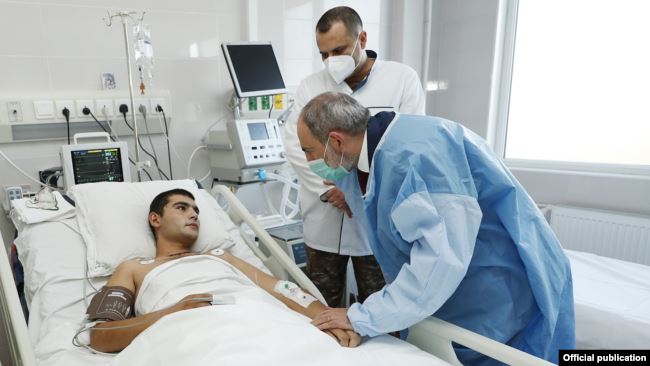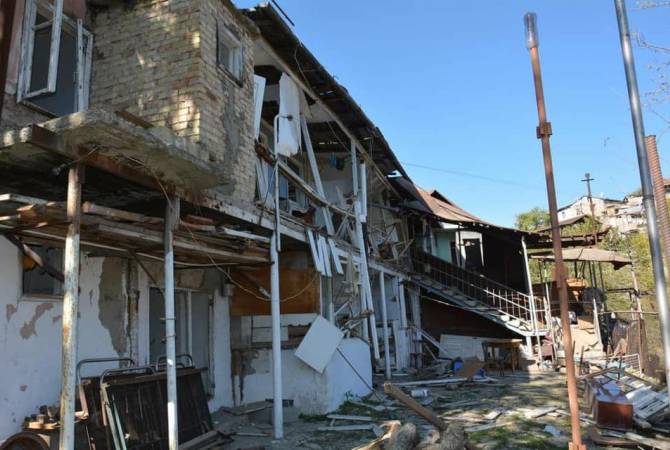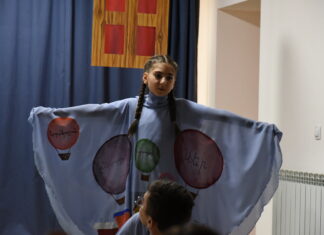STEPANAKERT (Combined Sources) — Fighting in the Nagorno-Karabakh conflict zone reportedly spread on Tuesday, October 27, to an area adjacent to Armenia’s border with Iran.
The Armenian Defense Ministry accused the Azerbaijani army of shelling its border posts and wounding several Armenian servicemen in the morning. The Azerbaijani side used artillery and combat drones, it said, adding that one of those unmanned aerial vehicles was shot down over Armenian territory.
A ministry spokeswoman, Shushan Stepanyan, said Armenian army units and border guards had to strike back in response. They inflicted “considerable losses” on the Azerbaijani side, she wrote on Facebook early in the afternoon.
The Azerbaijani Defense Ministry denied violating in the ceasefire in that area. It said that Armenian forces themselves opened “intense mortar fire” at its troops stationed in the Zangelan district bordering Armenia’s southeastern Syunik province and northwestern Iran.
The reported shelling took place near the Armenian-Iranian frontier which has long been protected by Russian border guards.
Russia also has up to 5,000 soldiers stationed in other parts of Armenia in line with bilateral treaties that commit Moscow to defending Yerevan against foreign aggression.









